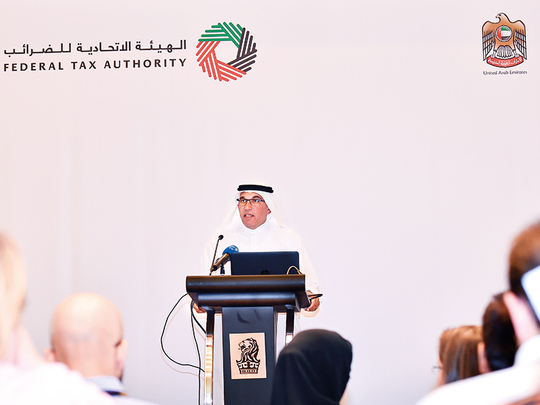
DUBAI:The Federal Tax Authority (FTA) on Wednesday morning offered a caution to restaurants, hotels, and shops: Don’t try to stock up on soft drinks and cigarettes before the excise tax arrives on October 1, as you will have to pay taxes on them regardless.
Hotels and restaurants will be required to prove that they have paid taxes on any stockpiled goods, which will be taxed at 50 per cent as of next Sunday. Any business which stores excise goods before October 1 is required to register and pay the tax on the goods stored, according to Khalid Ali Al Bustani, Director-General of the FTA.
Al Bustani’s comments came during an FTA press conference, during which they provided a thorough, technical explanation of the processes involved in implementing and overseeing the UAE’s upcoming tax on sugary drinks, energy drinks, and tobacco.
Ahead of the launch of the UAE’s first ever tax on October 1, the body in charge of developing and executing the country’s tax plans gave journalists gathered at the Ritz-Carlton hotel an insight in to how the tax will be levied and what retailers will need to do before next Sunday to ensure they are compliant with the new regulations.
The excise tax will see the price of cigarettes and energy drink brands, such as Red Bull effectively double overnight, whilst carbonated drink prices will increase by 50 per cent.
According to the government of the UAE, this will reduce the consumption of harmful products like tobacco and sugary drinks, whilst providing additional state revenue to be spent on public services like roads and facilities.
Such details on the implementation of the tax, which has been unclear until now, include the fact that retailers must declare the goods as being imported, as well as the quantity and the port of entry, by using the platform on the FTA’s website. The agency will not accept any paper tax returns, a spokesperson said.
According to Al Bustani, companies will then be required to pay the tax within 15 days of the end of the month in which the import took place.
The Director-General confirmed that at this time the cap of 200 per cent tax, which was announced last month, has not yet been applied to any product. Al Bustani declined to list which products might be taxed at that rate.
The official also responded to claims from major cigarette manufacturers such as British American Tobacco, who have claimed that the differing implementation dates among the Gulf Cooperation Council (GCC) member states may lead to what they call “parallel markets” or “grey markets.”
He reassured the tobacco companies that there were adequate safeguards in place to protect against the smuggling of goods from one state to another, and all GCC members would have implemented the excise tax by the end of 2017, Al Bustani added.
Also of note is that, unlike VAT, there is no minimum threshold for a business to be subject to excise tax. The FTA confirmed that the “vast majority” of companies required to register for excise tax have done so ahead of Sunday’s launch. Those that haven’t will face penalties, according to the new regulations.
In his opening remarks, Al Bustani stated that “implementing excise tax in accordance with international best practices is the culmination of an extensive process,” adding: “One where the FTA worked with some of the world’s leading companies to develop a tax system that suits the UAE. The excise tax has been adopted to reduce the consumption of goods that damage people’s health.”
On the registration process, Al Bustani said that the FTA had attempted “to provide a simple, seamless and intuitive tax system.”
The FTA opened its online registration process on the FTA website from September 17. According to the government body, the website witnessed a “huge turnout for registration and all 250 excisable businesses are projected to be registered by the end of September. This reflects the effective partnership we forged with all strategic stakeholders, and demonstrates their commitment to achieving an effective tax system.”












